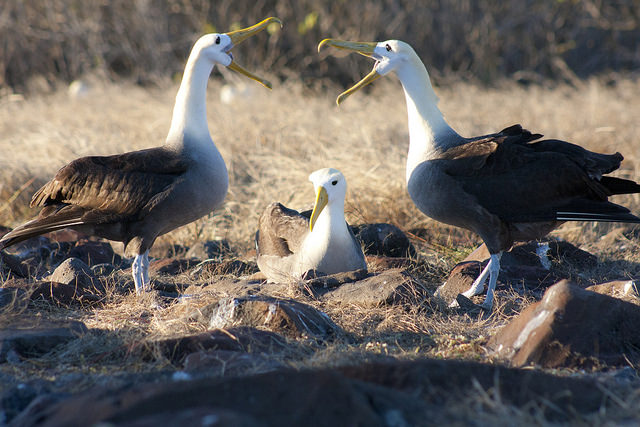Facebook conversations can get polarized fast.
And it doesn’t help that we are “friends” with people we barely know. I often see people openly struggling with the question of how to dialogue when someone expresses disagreement—especially when it concerns heated issues and values that are at the core of who we are.
Can we only be friends with people who agree with us? That, of course, begs the question: What’s the purpose of friendship? If it’s for solidarity and support in living our values, then friends who disagree with our core values aren’t much help.
Some friendships can survive differing opinions, as long as we don’t talk about them. Some friendships can’t survive them at all, hence the “unfriend me if you disagree with me” comments. Sometimes it’s easier to not go there and even ask how different our views might be.
Living in an ecovillage, I make a lot of assumptions that just because people care about sustainable living in intentional community, they also share my opinions on welfare or racial equality, say. I’m guessing a few don’t, and I don’t necessarily want to go to that place of exploring it with them to find out how similar we really are. Similarities are places of solidarity which can affirm a friendship and make them safe places to reside.
“Yes, we agree. Let’s stay safe and stay within these boundaries.”
But it also makes the friendship shallow. It can be scary to go to that place of examining our differences, trusting that we can explore them with the spirit of fun and understanding that we bring to other areas of our friendship. Do we trust the friendship to hold our areas of contention with compassion and understanding? Our beliefs are evidence of our inherent goodness, that we care for those in our in-group with compassion. A belief that the out-group (of whom our friend might be a part) is not so entitled to healthcare or a right to live in our country, might be offensive.
Often, on social media, when friends disagree with commentaries about racism and white privilege, they are unfriended. This might seem justified if, for example, the friend is an acquaintance spouting hate speech, especially if I’m a person of color (which I am). Perhaps it is fundamentally impossible for me to be friends with someone who denies the Holocaust or who believes that police need to take back their authority from liberals demanding that criminals be treated with kid gloves.
I feel nauseous when I think about befriending any of the boys who threw stones at me when I was young and yelled at me to go back where I came from. Yet years later I did actually become friendly with people who behaved similarly in their youth, when we’d moved on from focusing on blaming immigrants and being hurt by it. By staying in our polarized camps, are we letting go of the opportunity to tell others how we feel? (Do I mean “convince”?) Superficially, maybe. But are we going to seek only like-minded company until the world is inhabited by increasingly polarized groups of people who don’t know how to dialogue?
One of my richest friendships was with Terry, separated now by geographical distance. I was wary of him for a long time because I perceived him as a red-necked Australian, which in some ways he is. As I got to know him, I jokingly called him my racist, sexist, homophobic, porn-loving friend with the emphasis on friend, because while we differed in some of our opinions and ways of being in the world, some of our values were closer than I expected. And we cared about each other deeply. If everyone cares about someone, what is stopping us from seeing beyond the enemy images we create of all those we choose not to like?
Fear and defensiveness, maybe.
Terry and I were reluctant to impose an enemy image on the other just because we disagreed. Instead, we quietly assumed that the other had differing beliefs based on the complex algorithm of genetics, environmental conditioning and past experiences—in sum, because we all experience life differently. From this place of mutual understanding, we were able to discuss the difficult topics. We held our opinions with care, and the freedom to be authentic exposed the other to a different way of being that chipped away at discrete ideas of right and wrong. We were lucky, of course, we had a genuine affection for each other that surpassed the desire for one of us to be right. And people rarely stay in friendships when none of their needs are met.
So while the bonds of real friendship can make up for differences in opinion, how do we stay authentic when we disagree with someone and we don’t have that closeness? At some point, when the relationship feels like hard work or is causing more pain than joy, we may choose to unfriend people literally or metaphorically. And yet, there are some people whom we can’t unfriend—family, for example, short of waiting for them to die which when it happens does not dissolve the feelings.
Maybe this isn’t so much a blog post about how to be friends with someone whose opinions you don’t like, as how to be in relationship with anyone with unresolved conflict—if being triggered by someone else’s opinions counts as conflict.
I was triggered by Terry’s opinions before I felt connected to him, but when we had established a friendship, only occasionally. He was able to hear me in those instances. Our unspoken strategy was to find common ground as soon as we could, and navigate the areas of discord from there. We were then able to find a lot more common ground within our differences and contentions, all the while hearing each other.
I am not personally friends with anyone who, for example, believes that Black lives do not matter, though I am friends with people who appear to be color-blind to my non-Whiteness. I am not friends with anyone who believes that a woman deserves to be raped, though I am friends with people who unconsciously slut-shame because they were raised to believe that a woman is asking for it if she shows too much of her body.
I am not friends with anyone in the military though I am friends with people who are not aware of the U.S. government’s aggression and violent interference in matters that do not concern it. Conversely I do not like the close friend of a close friend whose views concerning racism, gender violence and warfare are very similar to my own. What matters in a friendship is not where we stand on the continuum of agreement or disagreement, but our connection and how we hold conflict.
We agree and disagree with everyone, and what that means to us rests on the equation of:
1. How comfortable we are with the lack of alignment between our values,
2. The chemistry of the relationship and what other needs are met,
3. Whether we personally identify with our values, e.g., if a friend rejects those values, are they rejecting us as people?
4. How triggered we are by conflict and lack of acceptance.
5. Our past experiences around dialogue and debate.
6. Our hope or despair about the state of the world in relation to that value.
We can hide among communities of like-minded people; eventually conflicts will arise anyway and we will have to deal with them. Or we can sit with our discomfort around how we stay true to ourselves, while hearing others with curiosity.
Our society is polarized, and change tends to be reactionary rather than collaborative. Dialogue can bring us together, if we learn how.
Relephant:
Manifesting Mindfulness Through Speech.
~
Author: Elizabeth De Sa
Editor: Travis May
Photo: Flickr/The TerraMar Project












Read 2 comments and reply